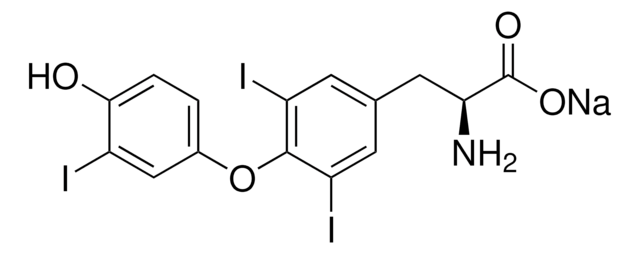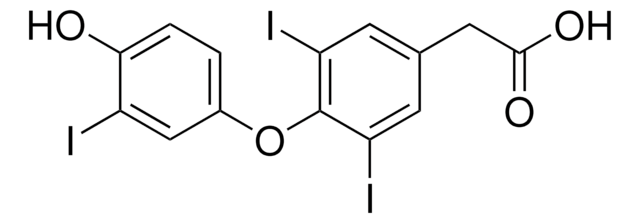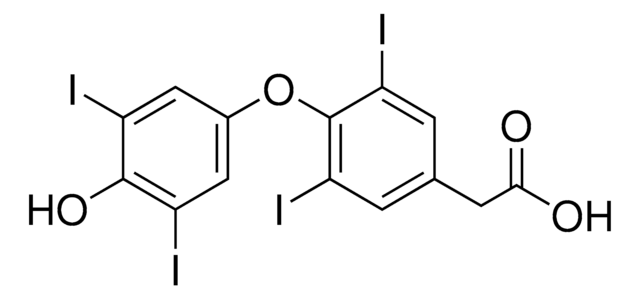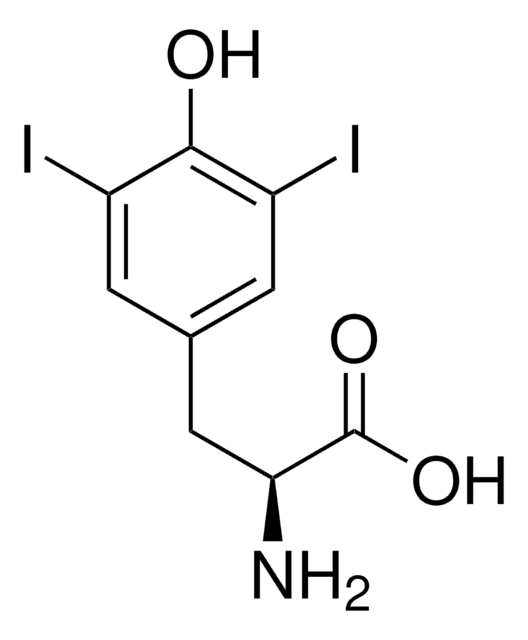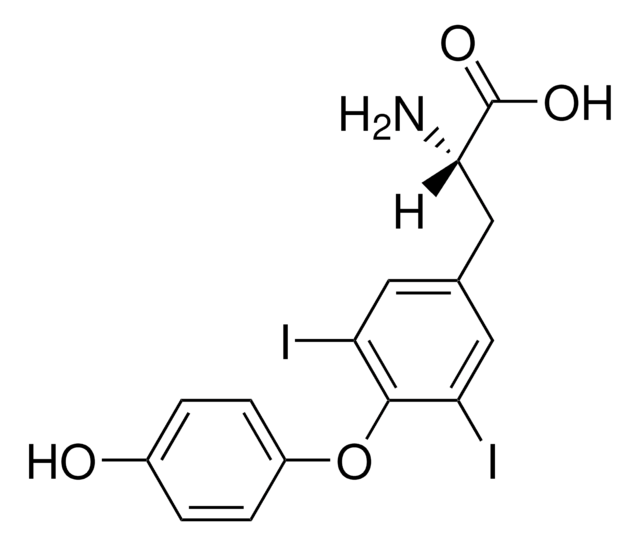Wichtige Dokumente
1368008
USP
Liothyronin
United States Pharmacopeia (USP) Reference Standard
Synonym(e):
3,3′,5-Triiod-L-thyronin, O-(4-Hydroxy-3-iodphenyl)-3,5-diiod-L-tyrosin, Liothyronin, T3
About This Item
Empfohlene Produkte
Qualität
pharmaceutical primary standard
API-Familie
liothyronine
Hersteller/Markenname
USP
mp (Schmelzpunkt)
234-238 °C (lit.)
Anwendung(en)
pharmaceutical (small molecule)
Format
neat
Lagertemp.
2-8°C
SMILES String
N[C@@H](Cc1cc(I)c(Oc2ccc(O)c(I)c2)c(I)c1)C(O)=O
InChI
1S/C15H12I3NO4/c16-9-6-8(1-2-13(9)20)23-14-10(17)3-7(4-11(14)18)5-12(19)15(21)22/h1-4,6,12,20H,5,19H2,(H,21,22)/t12-/m0/s1
InChIKey
AUYYCJSJGJYCDS-LBPRGKRZSA-N
Angaben zum Gen
human ... THRA(7067) , THRB(7068)
Suchen Sie nach ähnlichen Produkten? Aufrufen Leitfaden zum Produktvergleich
Allgemeine Beschreibung
Anwendung
Also used to prepare standard, standard stock, Liothyronine stock, and resolution solutions for assay, and identification test according to given below monographs of the United States Pharmacopeia (USP):
- Thyroid
- Levothyroxine Sodium Tablets
- Liothyronine Sodium Tablets
Hinweis zur Analyse
Sonstige Hinweise
Ähnliches Produkt
Signalwort
Danger
H-Sätze
Gefahreneinstufungen
STOT RE 1
Zielorgane
Thyroid,Cardio-vascular system,Kidney
Lagerklassenschlüssel
6.1C - Combustible acute toxic Cat.3 / toxic compounds or compounds which causing chronic effects
WGK
WGK 3
Flammpunkt (°F)
Not applicable
Flammpunkt (°C)
Not applicable
Hier finden Sie alle aktuellen Versionen:
Analysenzertifikate (COA)
Leider sind derzeit keine COAs für dieses Produkt online verfügbar.
Wenn Sie Hilfe benötigen, wenden Sie sich bitte an Kundensupport
Besitzen Sie dieses Produkt bereits?
In der Dokumentenbibliothek finden Sie die Dokumentation zu den Produkten, die Sie kürzlich erworben haben.
Kunden haben sich ebenfalls angesehen
Unser Team von Wissenschaftlern verfügt über Erfahrung in allen Forschungsbereichen einschließlich Life Science, Materialwissenschaften, chemischer Synthese, Chromatographie, Analytik und vielen mehr..
Setzen Sie sich mit dem technischen Dienst in Verbindung.

